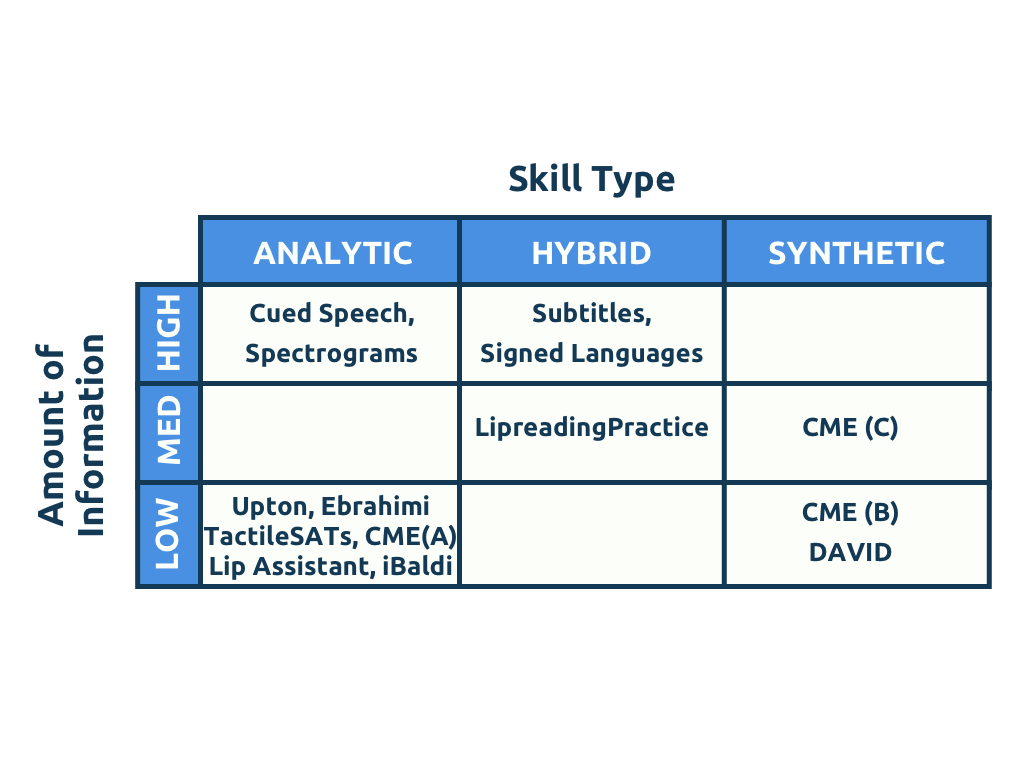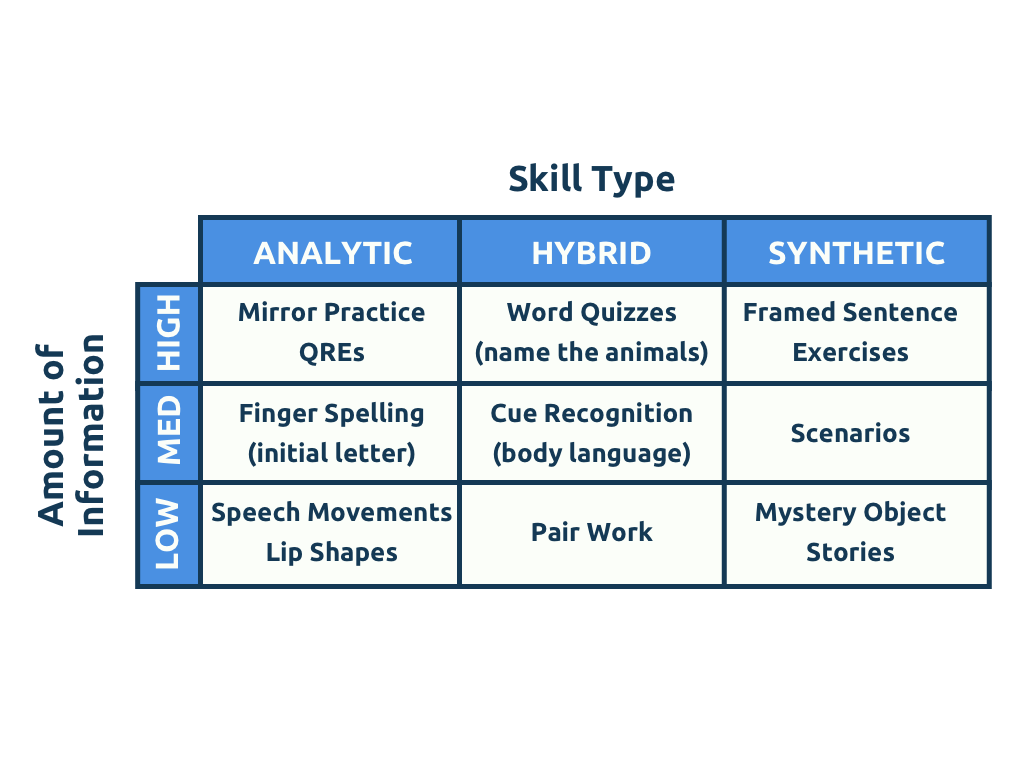2018
Speechreading Aquisiton Tools
Description
At least 360 million people worldwide have disabling hearing loss that frequently causes difficulties in day-to-day conversations. Traditional technology (e.g., hearing aids) often fails to offer enough value, has low adoption rates, and can result in social stigma. Speechreading can dramatically improve conversational understanding, but speechreading is a skill that can be challenging to learn. To address this, we developed a novel speechreading acquisition framework that can be used to design Speechreading Acquisition Tools (SATs) – a new type of technology to improve speechreading acquisition. We interviewed seven speechreading tutors and used thematic analysis to identify and organise the key elements of our framework. We then evaluated our framework by using it to: 1) categorise every tutor-identified speechreading teaching technique, 2) critically evaluate existing conversational aids, and 3) design three new SATs. Through the use of SATs designed using our framework, the speechreading abilities of people with hearing loss around the world should be enhanced, thereby improving the conversational foundation of their day-to-day lives.
Introduction
Speechreading can dramatically improve conversational understanding. However, speechreading is a skill that can be challenging to learn. We want to design technology to help address this problem.
In this project I developed a framework that can be used to design Speechreading Acquisition Tools – a new type of technology to improve speechreading acquisition.
To begin with our research questions were:
Do tutors teach analytic or synthetic training methods? What do tutors consider to be the teachable unit of lipreading? What technology if any is currently used in teaching? Could lipreading as a technique be improved with new technology or training approaches? How do students practice when the are not in class?
Method
We wanted to base our framework on current practice. So I interviewed seven practicing speechreading tutors to see acquisition could be improved with technology.



Associated Publications
- A Framework for Speechreading Acquisition Tools
- A Framework for Speechreading Acquisition Tools (Thesis)
Collaborators
- Dr David Flalta, University of Guelph